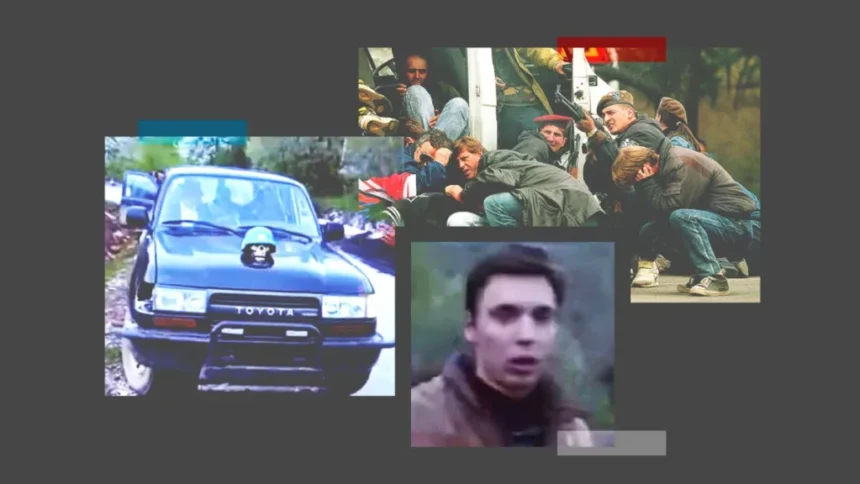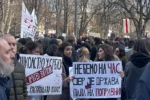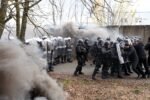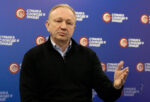President Aleksandar Vučić of Serbia has publicly denied involvement in what has been termed the “Sarajevo Safari,” a reported operation during the 1990s Balkan wars in which wealthy foreigners allegedly paid to shoot civilians in the besieged city of Sarajevo.
The allegations were initially raised by investigative journalist Domagoj Margetić, who claims Vučić, then a young volunteer in a Serbo-Bosnian militia, assisted foreigners in targeting civilians between 1992-1993 at a strategic location above the city. Margetić has presented evidence to courts in Milan, including witness testimonies and archival footage, suggesting that Vučić was present at positions where sniping of civilians occurred.
According to Margetić, the operation involved foreign participants from Europe and Russia paying as much as £88,000, with additional payments for targeting children. Some videos reportedly show Vučić holding a Serbian “PAP” rifle at the site, though Serbian officials argue he was using a tripod as a journalist.
Vučić’s Response
Vučić’s office, through spokesperson Suzana Vasiljević, dismissed the allegations as “malicious disinformation” aimed at undermining the credibility of the Serbian state and its president. She stressed that Vučić, then in his early twenties, worked as a journalist and translator in Pale and had no operational or combat role.
Contradictory Evidence
Margetić points to Vučić’s 1994 statements admitting voluntary service at the Jewish cemetery in Sarajevo and the 2017 testimony of militia leader Slavko Aleksić, who confirmed Vučić was part of the unit. Italian sources and former diplomats also report the organized transport of foreign “hunters” to Sarajevo, corroborating claims of foreign involvement in civilian targeting.
Political Context
Beyond the historical allegations, the claims raise broader questions about Vučić’s long-standing political narrative and Serbia’s official denial of wartime complicity. Critics argue that state-controlled media and government rhetoric under Vučić have consistently downplayed or obscured Serbia’s role in wartime atrocities, and such denials serve to reinforce domestic legitimacy while avoiding international accountability.
The Milan investigation, relying on witness testimonies and archival media, continues to examine the scale and nature of foreign participation and Vučić’s alleged role, but the case highlights the enduring tensions over historical memory, political power, and impunity in the region.







